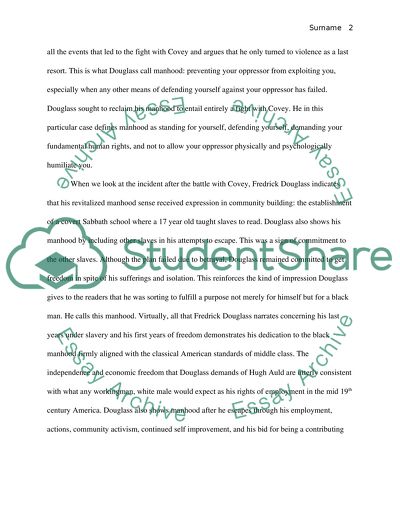Cite this document
(“How does Douglass define manhood Essay Example | Topics and Well Written Essays - 1000 words”, n.d.)
Retrieved from https://studentshare.org/literature/1473210-how-does-douglass-define-manhood
Retrieved from https://studentshare.org/literature/1473210-how-does-douglass-define-manhood
(How Does Douglass Define Manhood Essay Example | Topics and Well Written Essays - 1000 Words)
https://studentshare.org/literature/1473210-how-does-douglass-define-manhood.
https://studentshare.org/literature/1473210-how-does-douglass-define-manhood.
“How Does Douglass Define Manhood Essay Example | Topics and Well Written Essays - 1000 Words”, n.d. https://studentshare.org/literature/1473210-how-does-douglass-define-manhood.


